Bayer Leverkusen, one of Germany’s most respected and enduring football clubs, has a rich and intriguing history that spans over a century. Founded in 1904 by employees of the Bayer pharmaceutical company, the club began as a factory team, playing a humble role in local competitions. However, from its early days, Bayer Leverkusen demonstrated ambition and community spirit, steadily building its way up in the German football scene.
What set the club apart was not just its connection to the industrial powerhouse that gave it its name but also its ability to attract top-tier talent and cultivate a strong footballing culture. Over the years, Bayer Leverkusen grew into one of the most consistent teams in the Bundesliga, with a particular knack for challenging Germany’s elite clubs. Their rise to prominence in the 1980s and 1990s brought unforgettable seasons, near-misses, and a series of milestones that have shaped its legacy.
Beyond just trophies, Bayer Leverkusen’s story reflects the broader evolution of German football, marked by resilience, innovation, and passion for the sport. From its industrial roots to a respected footballing institution, Bayer Leverkusen’s legacy continues to be one of ambition, striving to push the boundaries of what it means to be a true competitor on the global stage.
Here, we will unveil every milestone and key moment of this journey. Make sure to take a look at each aspect below to see what sets the Bundesliga champions apart from the other clubs in the continent. Here’s everything you need to know about Bayer 04 Leverkusen:
Table of Contents
- A Century of Football: Evolution and History of Bayer Leverkusen
- Bayer Leverkusen: A Pillar in European Football History
- Bayer Leverkusen’s Stadium
- History of Bayer Leverkusen
- Main Achievements and Trophies
- United by the Sports Spirit
- Time to Write Your Own History With FootballTeam
Bayer Leverkusen: A Pillar in European Football History
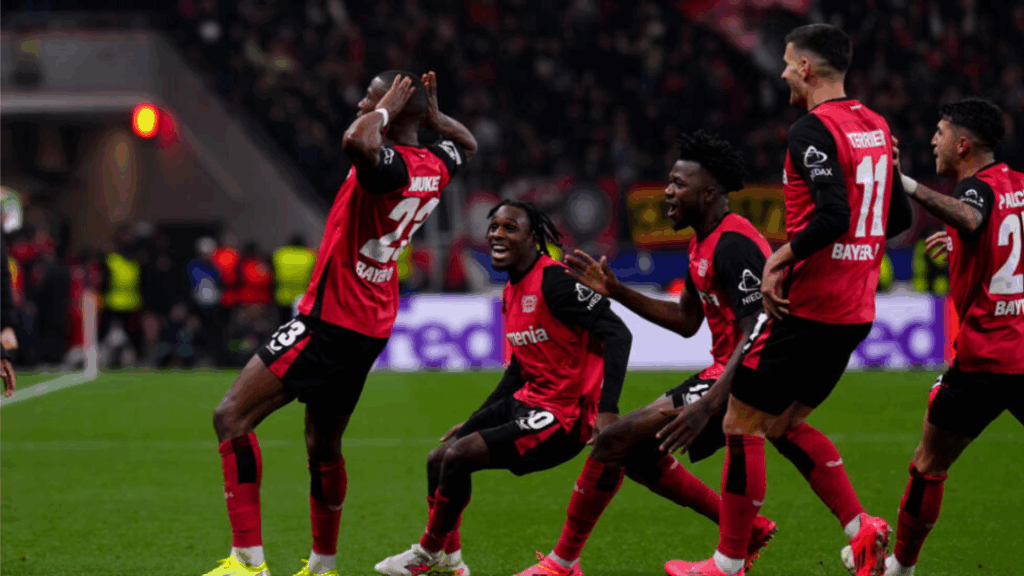
Leverkusen is a well-known football team, but what sets them apart from other giants of the UEFA Cup and the other teams in general? To start, the team was created by factory members who wanted to create a football department and give the sport a try. It was never intended to become a professional club, and the idea of participating in the UEFA Champions League wasn’t even a thing.
Many people considered Bayer a “plastic club” due to its origins and differences when compared to the more traditional clubs. Yet, they displayed unique talent and showed the world they deserved to be considered professionals in the sport. Their history is full of ups and downs, and their resilience is another aspect that sets them apart from average runners-up or small clubs.
Whether in friendly matches or a Champions League final, you can expect them to fight with all their strength and show the world what they’re made of. The team is constantly growing and their trajectory over the century is marked by iconic performances.
They helped shape German football and were indispensable for shaping European competitions into what they are today. If you’re a football fan, you can’t miss this team.
Bayer Leverkusen’s Stadium
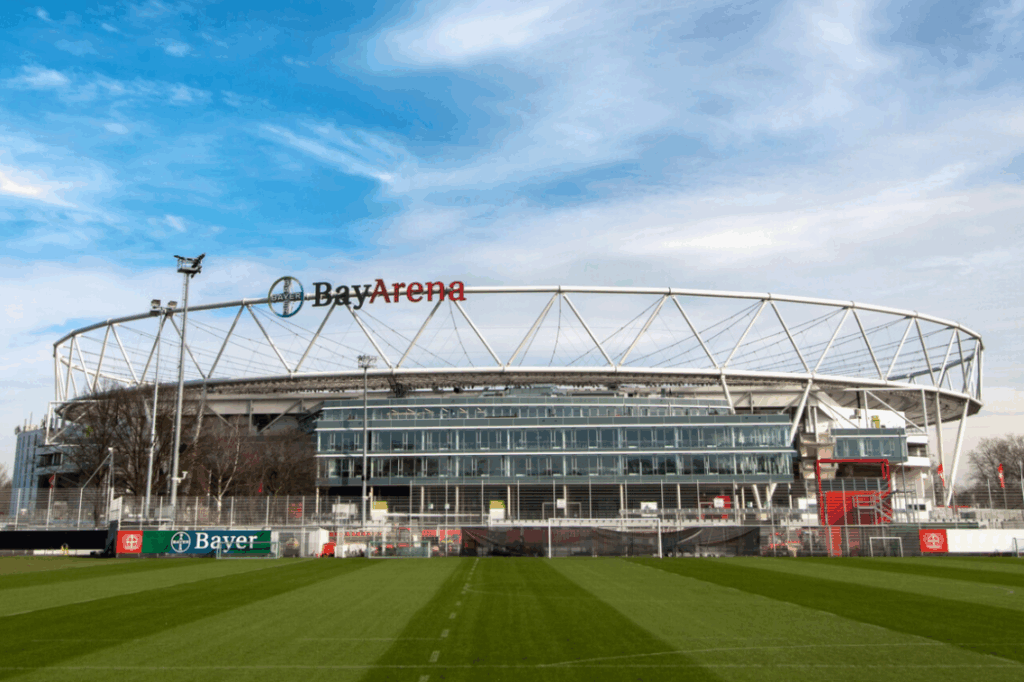
Unsurprisingly, the arena used by the team for home games is also sponsored and built by Bayer, the giant pharmaceutical company. The company made significant contributions to the sport in Germany, and this building is one of them.
It became an iconic ground and the perfect European venue for a series of events, including Europa League games, concerts, and many other types of entertainment opportunities. But more than a great venue with a distinct look, it is the heart of the team, and it was on its pitch that the club won some of its most important matches.
The stadium has a distinct look, and the details instantly remind me of Bayer AG, a well-known tourist attraction in the region. In addition to hosting Leverkusen’s home games, it also hosted matches from the national team and other important events that happened in the region.
It perfectly mixes eye-catching architecture with comfort and technology to provide the best experience for both players and visitors enjoying the matches. It has over 30,200 seats and can be easily modeled for different sports and kinds of events being hosted. Its versatility is one of the reasons why it is constantly used for a variety of sports. Whether it’s a DFB Cup game or a match for the Bundesliga title, you can expect games to be hosted at this arena.
History of Bayer Leverkusen
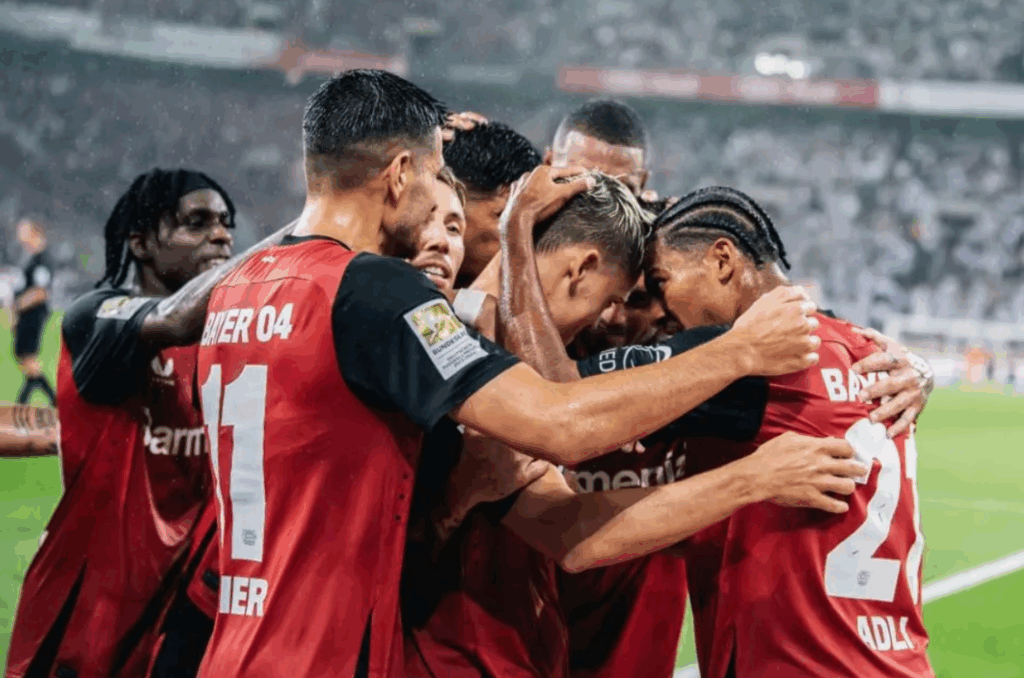
Now, it’s time to dive into this club’s history and the main details of this journey. From its humble beginnings to its success over the years and the main names responsible for it, we will cover every aspect of the club and what separates it from the other clubs on the continent.
Make sure to take a look at each aspect below, and you’ll become an expert on the matter. Whether you’re a football fan or an aspiring player, this article is for you. Here’s everything you need to know about the Bayer Leverkusen history:
Creation and Early Steps

Unlike teams that are purchased by big companies and carry their names for marketing purposes, Bayer Leverkusen has always been directly related to the pharmaceutical company.
It was not the first team to do something like that, and the tradition of workers creating football clubs and teams wasn’t rare back then. Leverkusen was officially created in 1903 when a company member, Wilhelm Hauschild, wrote a letter to the company’s owner asking for permission and support for creating a sports club. The letter was delivered to his employer and signed by 180 other members of Bayer and Co.
The company agreed to create the club, and soon after, Turn- und Spielverein Bayer 04 Leverkusen was created. It was considered a worker’s team and started participating in competitions and games of their category in the following season.
However, the team’s creation also started raising disagreements among the members. At the time, there was intense animosity between general athletes and gymnasts. This got even stronger in the company after a football division was created within the sports institution.
After some time, the two divisions were separated. On one side, there was the general athletes division, with football, handball, boxing, and other sports. They adopted the classic colors of the company and were the official representatives of the brand inside the field.
On the other side, there were the gymnasts. They adopted blue and yellow as their official colors but were still part of Bayer.
First Games and Climb to the Top
Since the club was a mere workers team having fun in the sports universe, winning a major trophy wasn’t even a dream yet. The team had its own goal for the subsequent years: improving their skills and slowly climbing between divisions. They played in the country’s third and fourth divisions of soccer and were nothing more than an amateur team at the time.
However, due to the players’ talent and abilities, the team quickly earned a promotion to the second-highest division in the country. This showed the team and Bayer that the football division had a bright future ahead and was worth the investment.
In 1936, they were promoted to the second division, and it was also the first time they wore the famous Bayer cross in their uniform. It was the beginning of a new era, and both the club and the company were proud of how far they had come in such a short time.
Their time in the second league was marked by various performances, from outstanding campaigns that left fans in awe to not-so-happy results and bitter defeats at home.
The team still had a lot to learn, but they were on the right path, and it would not take long for them to reach the top of the country’s football league. They were getting better one round at a time, conquering more fans and helping spread the sport’s popularity in the territory.
World War II and Football Pause
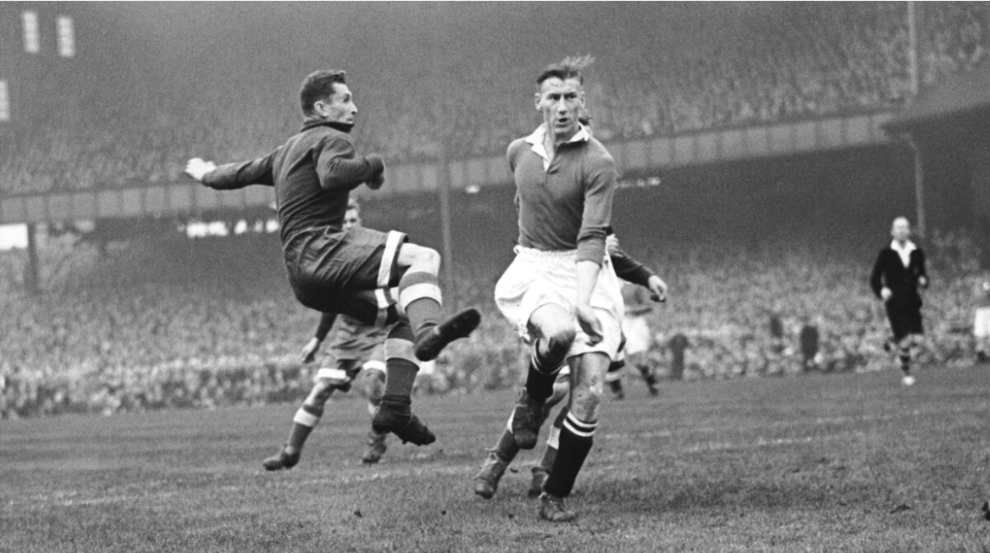
In 1939, the world saw everything change as the Second World War emerged, and fear took over the entire European territory. Germany was at the center of the conflict, so it was natural that the sports universe would also be impacted. While some countries continued to hold tournaments and games, others, like England, decided to give it a break.
It was a very volatile time for the sport, and it was always uncertain whether the games would happen due to attacks and other factors. The German football league championship was paused for a while, and it was way more challenging for teams to grow.
Teams even lost players during the war and the chaos was spread throughout the entire territory. From 1939 to 1945 there were no such things as Oberliga or DFB Pokal.
Thankfully, after the conflict was over, the sport was back stronger than ever. The culture of football was spreading throughout Europe, and people needed new forms of entertainment. Going to the stadiums and watching football matches was the best way to return to the peaceful days and feel like things were returning to normal.
Bayer Leverkusen was growing fast, and the post-war era helped reinforce this feeling. Even though they hadn’t won a major honour yet, it was just a matter of time. They were growing within the second league, and each season brought better results.
Reaching First League and New Challenges

In the early years, the objective was never to win the biggest competitions in the country but to have fun and show their talent. However, there they were now. In 1951, they were promoted to the first league, the highest level of football established in Germany.
Not only that, but they were also playing in one of the biggest tournaments in the territory, the Oberliga West, against some of the main teams in the country, including Borussia Dortmund and their biggest rivals, Bayern Munich. The Oberliga division was their home for a couple of years until 1956 when they were relegated for the first time in the club’s history.
They stayed in the second division group for quite some time and only managed to come back in 1962. This was only one season before the creation of the Bundesliga, the new major honor in the country that represented the most important title. It was the Premier League of Germany, and conquering it was Leverkusen’s objective.
Relegation and Difficult Times
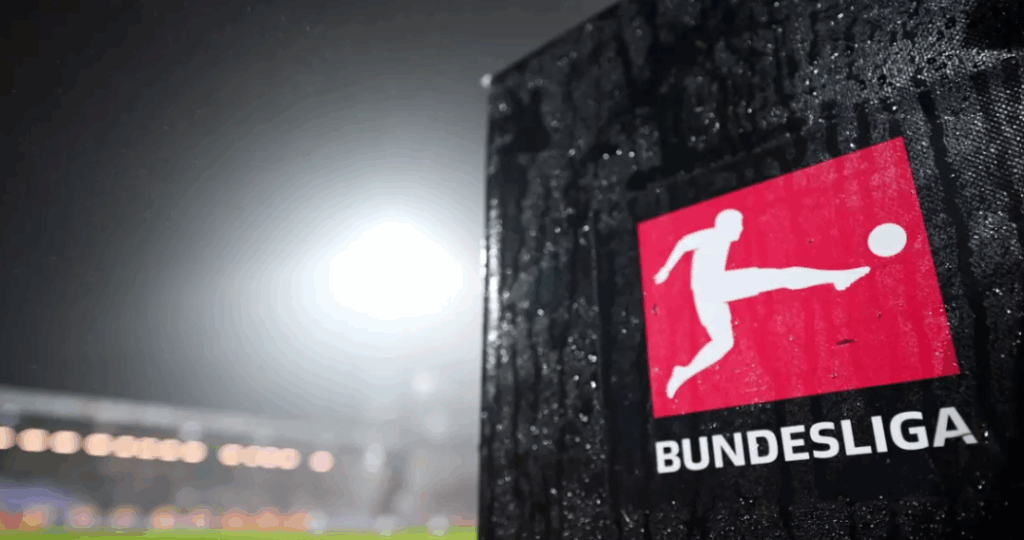
The Bundesliga victory was not a reality, and soon after the tournament, Bayer Leverkusen was relegated to the second division once again. They competed in the Regionalliga West, one of the main competitions in the tier. However, after being defeated in the competition during the quarter-finals, they went on a constant downfall.
The team didn’t manage to keep up the good results, and even their biggest scorer struggled to hit the net. As a result, the team reached the bottom of the board and almost got relegated to the third division of football.
This downfall was a result of numerous factors together, including dated strategies that were countered by opponents, a lack of star players with great results, and much more. Even though the club was far from having financial difficulties due to being part of Bayer, their performance was also disappointing to the pharmaceutical company as they were directly investing money in the team.
Jumping Through Divisions
Their recovery plan began in 1968, after spending quite some time unable to return to the first division of German football. Even though their name was already known among football fans of the entire European continent, it was also synonymous with uncertainty and surprises.
The team was starting to find its way back to the first division, but even though they managed to win the tournament and claim the second division title, they were relegated a third time soon after that. They also played one season in the third division, but the team finally found its way back to the top.
Bayer Leverkusen was restructuring its strategies, hiring new coaches and players, and doing everything to become a symbol of football in the country along with Borussia Dortmund and Bayern Munich. The restructuring was effective, and by 1980, the team was solid once again, lying in the middle of the first-division table.
The 80s were a critical decade for the club, as they reached results stability and won their first international award. In 1988, Bayer Leverkusen conquered the UEFA Cup, winning against teams like Real Madrid, Barcelona, and many others.
The tournament finals were one of the most breathtaking moments in the club’s history, leaving everyone at the stadium in awe. It was a game against Espanyol, decided by penalties after a legendary draw during normal time.
Reiner Calmund Era and Absolute Success

Soon after they won the UEFA Cup, another significant milestone in the club’s history was written. Reiner Calmund was officially named general manager of the club. The numerous supporters were happy with this news as he was already an executive of the club and well-regarded by everyone.
This change also had an instant impact on the club’s overall structure and performance. Bayer was more successful than ever, and after this decision, it started its best decade in the club’s history, reaching outstanding results and participating in the main tournaments in the country and the continent in general.
It is also important to highlight another historical event that directly impacted Leverkusen and other clubs. In 1990, Germany was reunified after the Berlin Wall’s creation. With this, Calmund saw the opportunity to sign star players and relevant talents from the other side of the country.
This decision brought positive results for the club, and the players arriving from the other side instantly became fans’ favorites thanks to their excellent results on the field. Along with players from Frankfurt and other parts of the country, he also signed talents from Brazil, including the famous player agent Juan Figer.
While some players helped with outstanding performances and creative players, others helped with the club’s popularity and awareness. Together, they created one of the best rosters in the history of Bayer Leverkusen and achieved further than ever before.
Continuing the Success and New Trophies
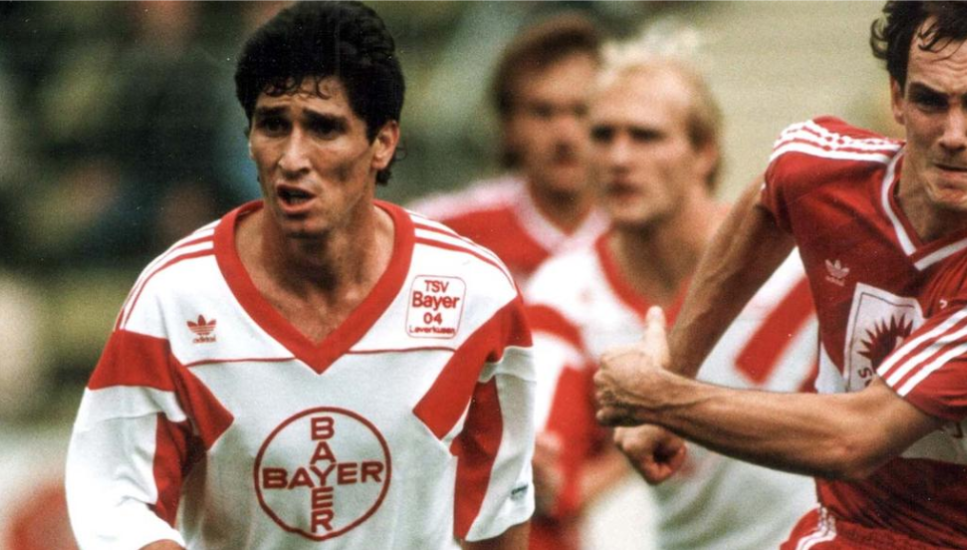
The 90s were marked by new achievements and the same success as the last decade. The team was constantly growing and classifying for the biggest tournaments they could dream of.
They already had a UEFA Cup trophy, one of the biggest awards in the entire continent, but this wasn’t enough for them. In 1993, they also conquered the popular DFB Pokal in a thriving campaign marked by outstanding performances and great results against the big teams of Germany.
In the following season, Schuster, one of Leverkusen’s most popular players, also scored a 45-meter goal that would later be considered the German Goal of the Year and a contestant for Goal of the Decade. They were already a strong team and a symbol of pride for their city, but now they were also a club to be feared by opponents and marked by constant victories and achievements.
The closest they went to going off the golden era was in 1996, when they almost got relegated once again. However, thanks to great strategic thinking, and a combination of offensive tactics and smart players, they managed to survive.
Much of that was thanks to the new coach Christoph Daum, who was also responsible for signing famous players like Zé Roberto, Michael Ballack, and many others. He introduced new philosophies and tactics to the club, renovating its way of playing to be elegant and technically advanced.
However, his career at the club didn’t last long and ended way sooner than it should have. He was later found guilty of a cocaine scandal and fired. This also cost him his job as the future coach of the German national team.
The Nearly Men
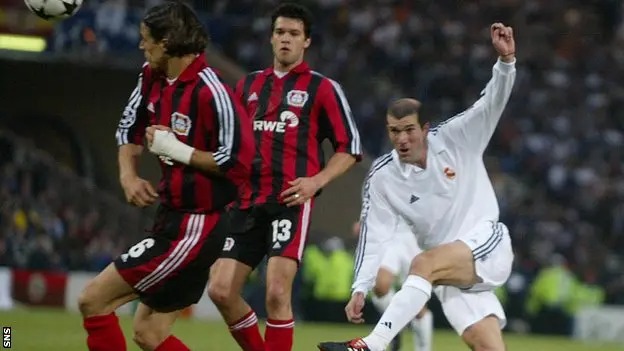
One common nickname for which the team is regarded is “the nearly men.” The main reason for this is the numerous seasons, from 1997 to 2002, in which the team finished second place on the run for the Bundesliga title.
It was heartbreaking for everyone, especially the fans, and it was almost comedic that they managed to lose all these seasons when some of them were nearly impossible not to take home the desired trophy.
One of the most devastating was during the 2000 season when the team needed a draw to win the competition, but an own goal by the star Michael Ballack took the dream away. Fans were in awe as the match against Unterhaching ended 2-0, and Leverkusen saw the title shiver away from their hands.
Another unfortunate loss was in 2002 when Bayer Leverkusen had a five-point lead in the tournament and was practically the winner of the season already. However, they managed to lose two of their three last matches. At the same time, their long-time rivals, Borussia Dortmund, had three consecutive victories, passing them and claiming the Bundesliga title that year.
At the same time, it had a safety position and outstanding results, always staying at the top 2 of the league and showing a high level of football. It was also incredibly frustrating for everyone to see these bitter losses so close to the end.
But the Bundesliga wasn’t the only tournament that gave them this reputation. During the same period, they also lost the UEFA Champions League final to Real Madrid and were knocked out so close to their biggest milestone yet. This also gave them another nickname created by English websites and TV programs, the “neverkusen.”
Following Years and Daum Dismissal
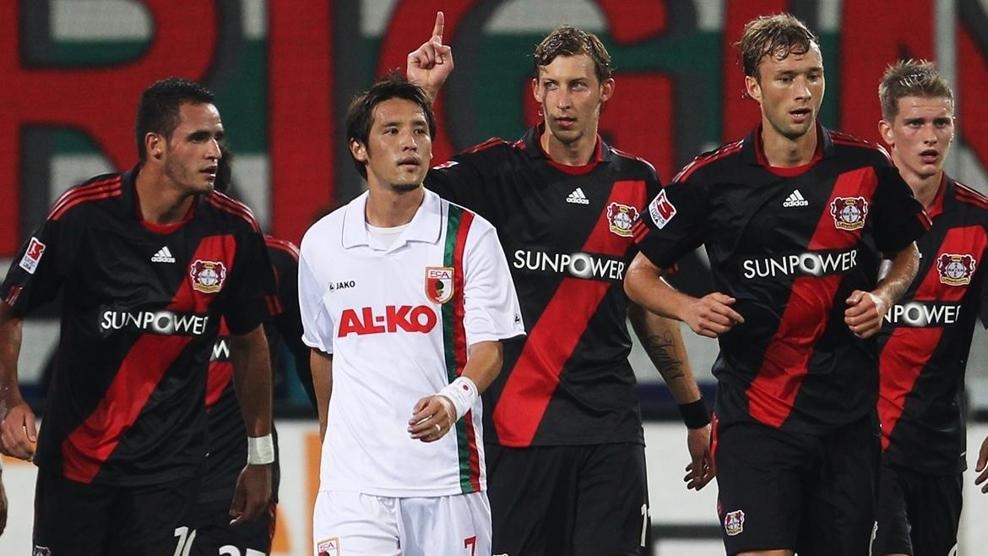
After some of the best years in the history of the club, Chris Daum was dismissed from the role of club coach. As we managed, he was directly responsible for making the club what it was and reaching its golden era, so substituting him would be quite a mission.
After much discussion and analysis, the club decided that Thomas Hörster would be the name for this task. His efforts seemed effective as the team managed to win against Real Madrid 3-0 in the first match of the Champions League. It helped the club advance from the group stage, but they unfortunately got eliminated in the first knockout match in a game against Liverpool.
In 2005, they reached their worst Bundesliga result in over twenty years, winning a single match in the first four games. The result was very similar in the following seasons, and the team was practically stuck in the lower half of the table. Even though it was not a case for relegation, the team needed to do something before it got worse.
These unstable results marked the following years for the club. It underwent numerous roster and management changes, with coaches from all over the continent joining to try to bring the club back to its golden days.
They were struggling to win any title, whether a UEFA Cup, DFB Pokal, or any other. But one change would be everything the team needed to shine once again and conquer the world of European football:
Xabi Alonso: Magical Player and Miraculous Coach
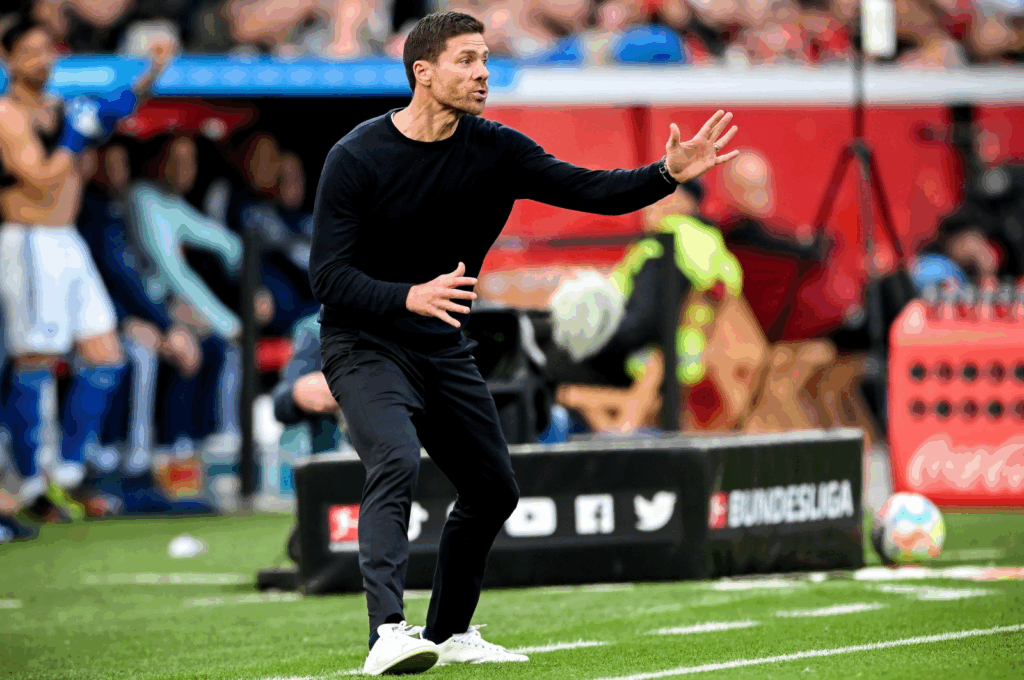
After years of struggling to replicate the success of the ’90s and early 2000s, the team made one hiring that changed it all: the head coach, Xabi Alonso.
Xabi Alonso is regarded as one of the most iconic football players of all time, and in his first senior managerial role, he also showed himself to be one of the best coaches in the world. Leverkusen was at the bottom of the table, risking relegation, and Xabi miraculously took the club from the bottom and managed to finish the season in sixth place, way above where the team initially was.
His efforts were instant, and the team was on its way to another golden era, full of awards and reaching further than ever before. Throughout the years, he made strategic signings and built a roster focused on making Bayer Leverkusen a star team and an example for the entire continent.
Leverkusen had an impressive start to their 2024 season, breaking both the club record for the longest unbeaten start and the European record for consecutive undefeated games across all competitions.
It was no surprise for anyone that Bayer secured the Bundesliga title, the first in their career, in that year. The Xabi Alonso miracle was real, and the team was better than ever.
It is safe to say that the club is in one of its best phases ever, and it will conquer much more in the following years. The team constantly qualifies for the biggest tournaments across the continent and is an example for the entire community of how to overcome obstacles and never give up. Bayer Leverkusen continues to inspire old and new players, helping shape the sports culture in the world.
Future of the Club

Xabi created one of the strongest rosters in the club’s history and one of the most potent teams in the world. Leverkusen is constantly reaching the finals of the main tournaments and has conquered numerous awards in the last few years.
It is safe to say that we will see much more of the club in the following years. Don’t be surprised if you see the team conquering numerous other trophies and achievements soon. Even though the 90s are still considered the golden era of the club, if things continue the same we can expect even better numbers.
Much of this success is thanks to Xabi and his expertise when it comes to football, but we cannot deny that the club’s roster is also stronger than ever and capable of conquering anything, from DFB Pokal trophies to Champions League and UEFA Cup titles.
Don’t miss out on Bayer Leverkusen. It is a top-tier team that constantly impacts the sports world and shapes football.
Main Achievements and Trophies

As expected from a team of this size, Bayer Leverkusen has a vast collection of awards they conquered over the century. Here, we will unveil some of the most iconic achievements and the history behind them.
Whether you’re a club fan or want to learn everything about the German team, we will show you everything you need to know. From national achievements to international glories, we will see each of their main awards. Here are the main trophies conquered by Bayer throughout their history:
UEFA Cup – 1 Trophy
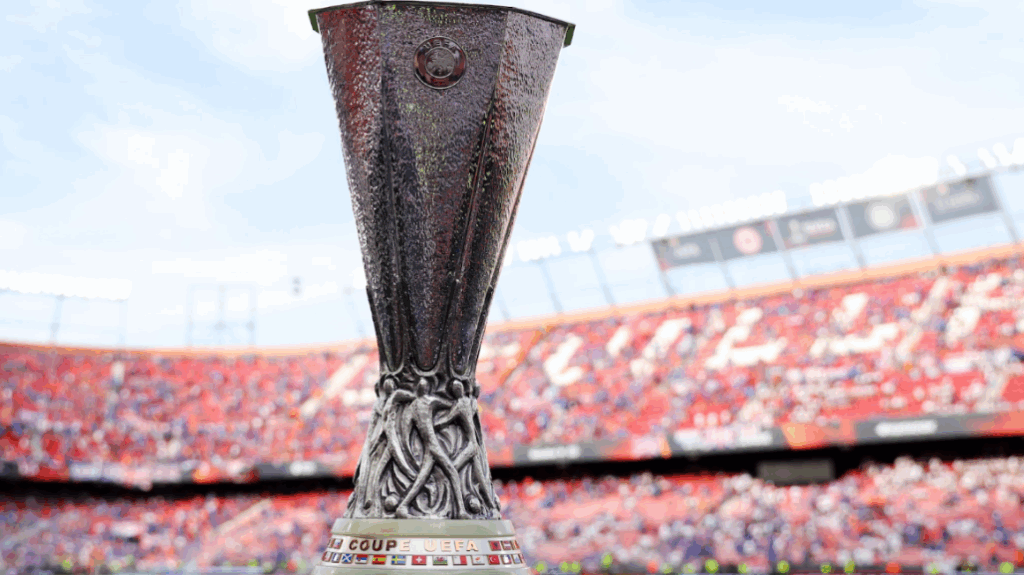
Even though the Champions League victory is still a dream for the German club, this doesn’t mean they don’t dominate the international field. They have already won the UEFA Cup in one of their most brilliant campaigns.
This title was essential to ensure fans that the team was back stronger after an unfortunate era of almost being relegated. The team showed that they were not the same as in previous years and managed to win against some of the biggest clubs in the continent, including Inter Milan, Barcelona, and others.
The entire run was full of breathtaking moments, and great plays immortalized in the club’s history. It is their biggest international trophy yet.
However, it is far from the end. The next step is to conquer the desired Champions League and become the absolute rulers of European football. They had numerous participations in the competition now and showed that they are capable of reaching such a goal.
Bundesliga – 1 Trophy

They might not have reached the highest honor on the continent with the Champions League title, but at home, it is completely different. As you might know, the Bundesliga is the most important German trophy and the top-tier tournament in football.
Many teams only dream of conquering the title. Bayer Leverkusen not only managed to achieve it but also did in one of their best runs ever, breaking multiple records and establishing a new level of football.
Their enormous talent is one of the reasons why the team is one of the main ones quoted to win the championship again in the following years. Whether at the beginning of the season or during the last weeks of the tournament, each game of the team is breathtaking to watch. You can add even more emotion and excitement if it’s a match against Bayern Munich or Borussia Dortmund.
German Supercup – 1 Trophy
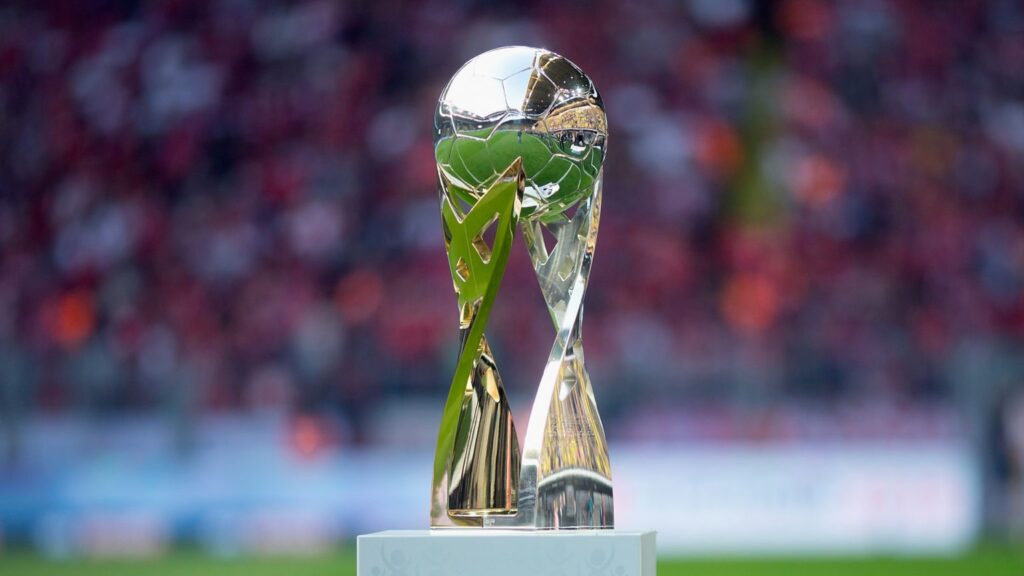
The German Supercup is a prestigious match that kicks off the season, played between the Bundesliga champions and the winners of the DFB-Pokal from the previous campaign. It’s a clash of German football giants that regularly draws massive attention from fans and media alike.
Although it’s just a single match, its stakes and prestige are extremely high. Bayer Leverkusen claimed the trophy in 2024, cementing their exceptional domestic season and showcasing the brilliant work of coach Xabi Alonso.
The Supercup is not only a battle for the first piece of silverware in the season, but also a statement of intent — a sign of which team might dominate in the months to come. If you enjoy analyzing top-tier showdowns and want to see who sets the tone in German football, this is a must-watch event.
United by the Sports Spirit
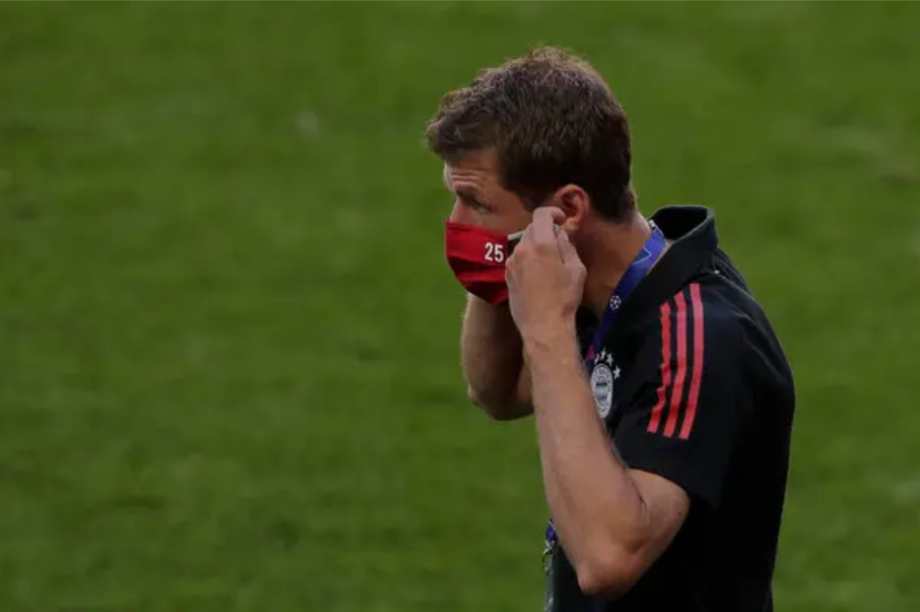
Bayer Leverkusen is constantly active not only inside the football pitch but also outside. The team continually engages in various charity activities, and initiatives to help other companies and clubs continue their dreams. The pharmaceutical company encourages this culture, so seeing the club follow the same steps is no surprise for anyone.
In 2020, during the Covid pandemic, Bayer Leverkusen, along with Borussia Dortmund, Bayern Munich, and RP Leipzig, reunited and raised 30 million euros, which were donated to Bundesliga teams that were struggling to survive after the outbreak since the games were stopped.
This is just one example of how Leverkusen is compromised with the football scenario to provide support and inspiration for smaller teams that also want a chance to join the bigger leagues. Even though they are directly competing for the awards, this doesn’t mean the teams won’t help each other. Bayer defends that everyone should do their part to transform the football industry into a friendly environment for everyone, regardless of team size, ability, or any other factor.
Time to Write Your Own History With FootballTeam

Bayer is one of the biggest teams in the history of German football, and we showed you some of the main details about this thriving journey that impacted the entire sports world. But now it’s time for you to write your own history with FootballTeam!
It is the definitive experience when it comes to competitive football, putting you against players from all over the world in a virtual field that will take your skills to the limit. Whether you want to experience building your own career as a player or want to adventure yourself into the managerial part of the club, the freedom is all yours to play however you want.
You have thousands of options to customize your character and team to ensure the best results and claim the title of best player in the world. The best part is that you can invite your friends and enjoy this together from any mobile or desktop device.
FootballTeam is a free-to-play experience that allows you to connect with people from all over the world and play on a series of different modes without spending a single dollar. Visit the main page now and start your journey!